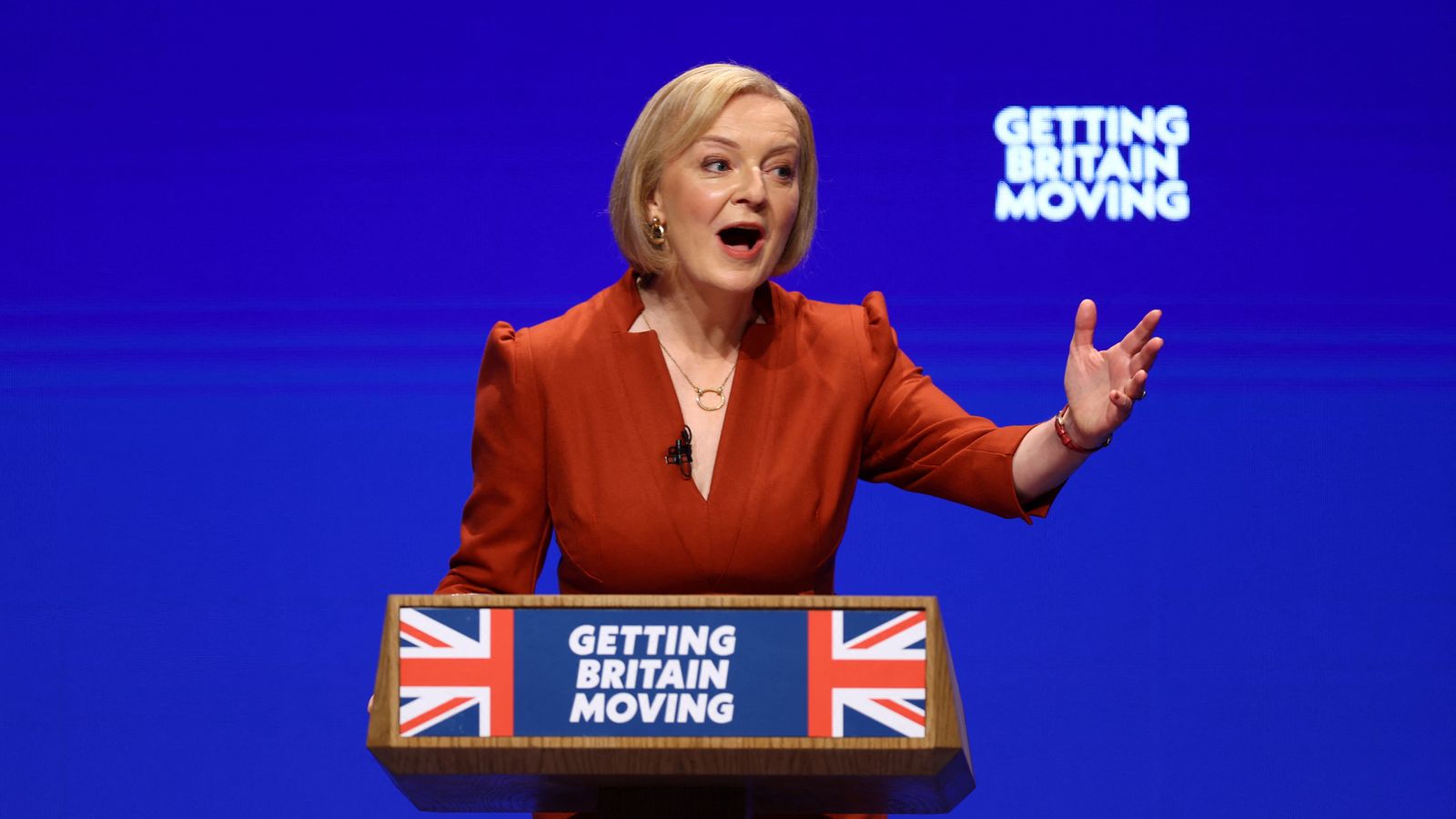Liz Truss vowed to “get Britain through the tempest” and insisted “everyone will benefit” from the result of her economic policies in her keynote conference speech during which she was heckled by Greenpeace supporters.
Addressing Conservative members at the event in Birmingham, as she battles to save her premiership, the prime minister acknowledged that “these are stormy days”.
“In these tough times, we need to step up,” she continued.
“I am determined to get Britain moving, to get us through the tempest and put us on a stronger footing as a nation.”
She continued: “Whenever there is change there is disruption. Not everyone will be in favour but everyone will benefit from the result.”
Ms Truss was interrupted by two Greenpeace protesters who heckled: “Who voted for this,” as they held up a banner.
They were quickly removed by security in the conference hall.
Foreign Secretary James Cleverly urges ministers to keep policy views ‘around the cabinet table’ amid Conservative infighting
After only 28 days, Liz Truss has had the worst possible start – can she win back control?
Liz Truss to close Tory conference by defending ‘new approach’ – after turbulent gathering
In a tweet after the incident, Greenpeace said activists were there to “denounce the prime minister ‘shredding’ her party’s 2019 manifesto promises”.
“The PM is U-turning on fracking, strong climate action, and world-leading environmental protections. Who voted for this?”
Continuing, the PM told the audience she and Chancellor Kwasi Kwarteng “will keep closely co-ordinating our monetary and fiscal policy” after the government’s tax-cutting mini-budget saw the pound slump to a record level.
She promised “an iron grip on the nation’s finances” and vowed to break Britain out of a “high-tax, low-growth cycle”, adding: “The chancellor and I are in lockstep on this.”
Ms Truss said she is “working flat out” to make sure people can get through the economic crisis.
“So let me be clear: we have your back,” the PM added.
The PM said she and Mr Kwarteng U-turned on abolishing the 45p tax rate on top earners because it “became a distraction”.
“I get it and I have listened,” she told the audience.
The tax cut for the wealthiest 1% was one of a raft announced by Mr Kwarteng in his mini-budget less than two weeks ago that led to market turmoil – with the pound plummeting, the Bank of England having to step in to rescue pension funds and mortgage products being withdrawn.
On Tuesday, Home Secretary Suella Braverman accused Tory MPs of staging a “coup” against the PM over the 45p tax rate.
Fellow cabinet minister Simon Clarke also publicly disclosed his objection to the reversal of the policy.
Outlining her three priorities for Britain’s economy: “growth, growth and growth”, Ms Truss said she “will not allow the anti-growth coalition of Labour, the Lib Dems and the SNP to hold us back”.
She accused Labour leader Sir Keir Starmer of having “no long-term plan and no vision for Britain”.
Hinting at more “disruption”, the PM also promised that her government will always be “fiscally responsible”.
Ms Truss also received applause for saying she is the first prime minister to have attended a comprehensive school.
However, former Labour prime minister Gordon Brown also did so.
The first standing ovation came when Ms Truss referenced the war in Ukraine, telling the audience of Tory members: “We will make sure this never happens again.”
But the speech, which was around half an hour long, contained no new policy announcements and made no reference to benefits – which the PM is also facing another split within her cabinet over.
On Tuesday, Leader of the House of Commons Penny Mordaunt joined backbench rebels in calling for welfare payments to be raised in line with inflation, which has been at around 10%, rather than earnings at 5%.
Two additional cabinet ministers have also told Sky News that they believe benefits should be uprated in line with inflation.
While it is understood that Chairman of the 1922 Committee of backbench Conservative MPs Sir Graham Brady has warned Ms Truss that any attempt to uprate benefits by average earnings rather than by inflation is unlikely to get through Parliament.











